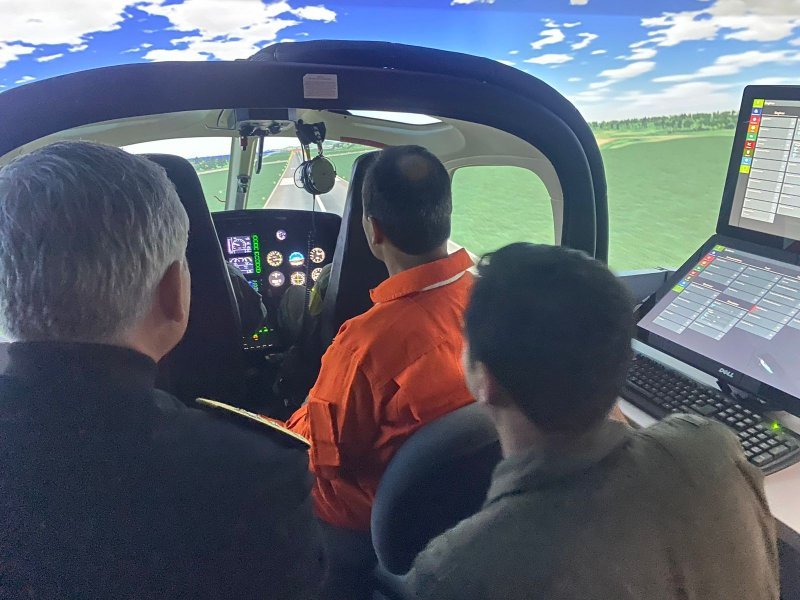Officers from the HU-1 General Purpose Helicopter Squadron and the “Guardiamarina Zañartu” Naval Aviation School conducted training on the H-125 (HH-50) aircraft simulator from the company Eco-Copter. This, with the purpose of keeping the emergency procedures of the recently incorporated Helicopter updated.
The pilots, who are undergoing their transition stage to helicopters, had theoretical classes and flight simulators at the company located at the Tobalaba aerodrome for a week, thus increasing their knowledge of the aircraft and undergoing emergency flights with instructors. , seeking to give greater security to the air operations that they will have during their careers.
During the practical stage, fault conditions (engine, hydraulic, electrical), fires (in flight and on the ground), rotor failures and other problems were simulated, exposing the pilots to a decision-making process in complex situations.
In this regard, the Commander of Naval Aviation, Rear Admiral César Delgado, stated that “training in this simulator is very important for our pilots since they can practice various emergency maneuvers and in various conditions, which cannot be done in aircraft. for the risks to people and to the Aircraft itself. In addition, we can practice many times until we get the maximum performance from the pilot”.
“In real operations, our pilots must have the skills and abilities to be able to carry out all the maneuvers and protocols in a safe, fast and automated manner; and that requires rigorous and constant training”, stressed Rear Admiral Delgado.
Naval Aviator Education and Training
It is important to mention the relevance of this type of training for Naval Aviators, since, when carried out in a simulator, it is feasible to expose the pilot to different weather conditions, in all flight configurations and possible missions to be carried out, generating in them an effective knowledge of the behavior of the aircraft in the event of failures or emergencies.
In that sense, Rear Admiral Delgado explained that “the simulator training of our pilots is added to an extraordinary and very rigorous training, which is recognized all over the world. The course begins in an advanced aircraft such as the Pilatus PC-7, therefore graduating as a Naval Pilot of this type, and with all the complex stages involved, leaves us very well trained to be able to fly other types of Aircraft” .
“After this training period, each Naval Aviator begins a different course according to their specialization, and very gradually, with the aim of acquiring more and more skills to perform in increasingly complex Helicopters or Airplanes. I have no doubt that the training we have for our pilots is of the highest quality and always at the forefront with the latest technologies present in the world”, concluded the official.


